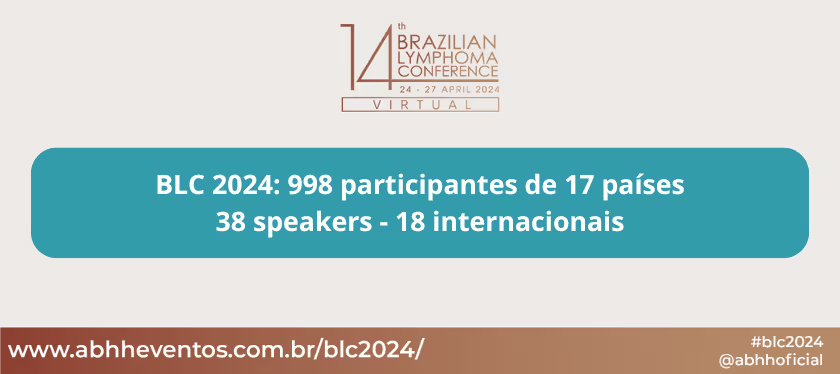The 14th Brazilian Lymphoma Conference (BLC 2024) concluded its fourth and final day with the Magna Conference “Circulating Tumor DNA in Lymphoma: Principles and Future Directions”, given by Dr. Ash A. Alizadeh, from the United States. According to the speaker, DNA changes may be informative in the diagnosis of the disease and must be analyzed.
“When it comes to a timeline, particularly when it comes to ctDNA, the circulating tumor DNA, it provides risk stratification for molecular classification and the prediction of clinical sensitivity to certain therapies,” says Alizadeh, who is linked to Stanford University.
According to Dr. Carlos Chiattone, president of BLC 2024, the event featured lectures on molecular biology of lymphoma. “We fulfilled this objective of bringing biological advances that are not always discussed at congresses in the area. This knowledge is important because it is through them that new therapies are developed,” says the director of institutional relations at ABHH, the institution that promotes the event.
Equity — Throughout the day's program, sessions were held on lymphoproliferative diseases, on lymphomas and chronic lymphocytic leukemia, and on hot topics in the area. At the end of each session it was opened for live Questions & Answers. The highlight was also the unprecedented lecture “Onco-hematological Diseases in Brazilian Amerindians”, with Dr. Kalysta Borges, from Brazil.
The speaker mentioned that there is a precarious system for recording information on incidence, hospital morbidity, and mortality related to oncology among indigenous people in Brazil. “It's a harmful demographic and epidemiological invisibility,” Kalysta points out, drawing attention to the ethnocentrism present in Western society and which reflects on the science agenda.
At the mediation of the live Questions & Answers of the hot topics session, Dr. Renato Cunha, coordinator of the ABHH Equity Committee, recalled that ABHH has been striving to promote the debate about equity in the area and on the access of different populations to the diagnosis and treatment of cancer in Brazil.
At the close of BLC 2024, Chiattone reported that the event was attended by 998 people from 17 countries, with 38 speakers, 18 of them Brazilians and 18 from abroad, and said that she considers this to be the best edition.
“We maintained the virtual form to have these highly qualified speakers from different countries and we were able to count on moderators, also highly qualified, who were active during the discussion with the proposal to bring, whenever possible, the discussion to our regional issues, which is what counts. Therefore, I thank all the participants and the organizing team”, concludes Chiattone









